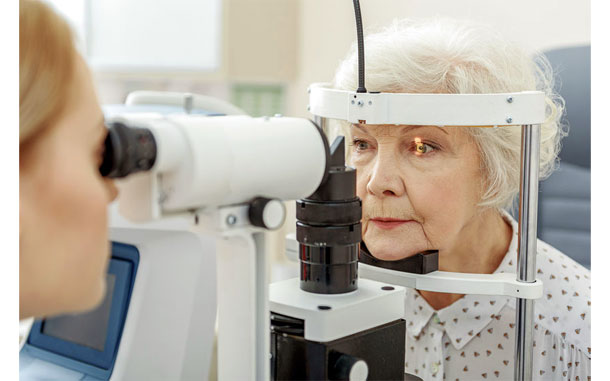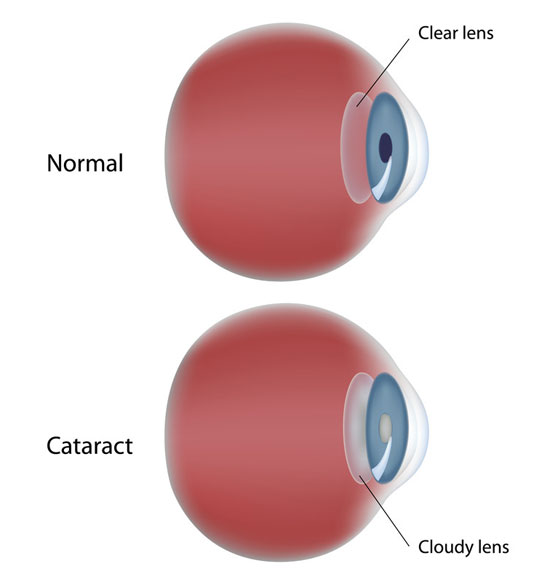Open by appointment only 604-859-2015. Masks are required.
Thank you for your patience
Cataracts
 What is a cataract?
What is a cataract?
When the normally clear lens within your eye becomes cloudy and opaque, it is called a cataract. Cataracts vary from extremely small areas of cloudiness to large opaque areas that cause a noticeable loss of vision.
Who gets cataracts?
Cataracts are most often found in persons over the age of 60, but they are also occasionally found in younger people, including newborns.
What causes cataracts?
No one knows exactly what causes cataracts. It is known that a chemical change occurs within your eye that causes the lens to become cloudy. This may be due to advancing age or it may be the result of heredity, an injury or a disease. Excessive exposure to ultraviolet radiation present in sunlight, cigarette smoking or the use of certain medications are also risk factors for the development of cataracts. Cataracts usually develop in both eyes, but often at different rates.
Can cataracts be prevented?
Currently, there is no proven method to prevent cataracts from forming. Wearing sunglasses is a tremendous benefit as they protect your lens from harmful UV rays, which can speed up the cataract formation. A diet rich in antioxidants (such as Vitamins A, C, E, Zinc, Selenium & Magnesium) is seemingly also beneficial.
What are the signs/symptoms of cataracts?
Cataracts develop without pain or redness, some indications that a cataract may be forming include blurred or hazy vision, the appearance of spots in front of the eyes, or the feeling of having a film over the eyes. A temporary improvement in near vision may also occur and increased sensitivity to glare, especially at night may be experienced.
How are cataracts diagnosed?
In the early stages of a cataract, where vision is only minimally affected, your optometrist can prescribe new lenses for your glasses to give you the sharpest vision possible. When the cataracts start to interfere with your daily activities and glasses cannot improve this vision, your optometrist will refer you to an eye surgeon who may recommend the surgical removal of the cataracts. The surgery is relatively uncomplicated and has a success rate of at least 95 percent.
When will I need to have cataracts removed?
Cataracts may develop slowly over many years or they may form rapidly in a matter of months. Some cataracts never progress to the point that they need to be removed. When a change in glasses can no longer provide functional vision, your optometrist will arrange a consultation with a cataract surgeon.
What happens after cataract surgery?
Intraocular lens implants, inserted in your eye at the time of surgery, serve as a “new lens” and sometimes give you good distance vision without glasses. Your near vision will still be blurred. Your Doctor of Optometry will prescribe new lenses for your glasses about 4 – 6 weeks after surgery to maximize your distance and near vision.
Eye Care Questions?
To speak to our eye care clinic's professional optometrists, contact us.










































